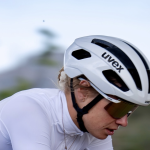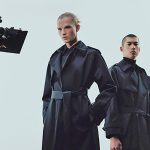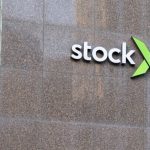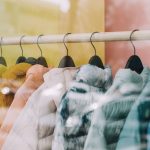Reebok International Ltd. continues to integrate The Hockey Company into the Reebok Brand business, merging the Reebok Canada operation with THCs operation and appointing Matt OToole, CEO of The Hockey Company, to lead the combined operation. Reebok Canada manages all RIL businesses north of the border, including GNC and Rockport. THC, clearly stung by the cancellation of the NHL season, only generated $24 million in the quarter and was about five cents dilutive to the bottom line. As a stand-alone company in Q1 last year, THC generated a $4.4 million loss on $42.6 million in sales. (Click Here to View Chart)
Upside from foreign currency exchange rates added about $15.4 million to Reeboks top line. Excluding the impact of both THC and FX rate benefits, total company sales still increased 6.3% to $900.8 million for the first quarter. The chart below breaks down the impact of The Hockey Company and FX rate benefits on sales for the Reebok Brand and total company for the quarter.
The inclusion of THC accounted for less than 1.0% of the increase in U.S. Reebok Brand footwear sales for the period as the region increased its percentage of full-price fill-in business to the total and reduced its returns, cancellations, and off-price closeouts as a percentage of the total.
Management said they believed they had “good” sell-through of the ATR Pump basketball shoe in the sporting goods and athletic specialty channels in the period following its debut at the NBA All-Star game. U.S. footwear sales of the RBK sub-brand were up in double-digits, driven by strong music-icon product sales.
Sales of Sports Performance products increased 8.0%, with Running category product boasting a 19% increase for the quarter. The Cleated business, which management said is drafting off of deals with the major sports leagues, saw a 280% jump in sales in the first quarter. The brand still has a rather minor position in the performance categories, with recent SportScanINFO data showing Reebok with a 2.2% share in Running and a 4.0% share in Cleated.
In results reflective of the markets shift to the performance categories, Reebok reported that sales of Reebok Classics footwear “declined slightly” in the first quarter. Worldwide constant dollar sales of Classics did show an increase, indicating more strength in the International business.
U.S. Reebok Brand apparel sales got about 6.0% of its lift from the inclusion of THC, but management said they also generated double-digit gains in both Licensed and Branded Apparel.
Both NFL and NBA increased in double-digits. Margins improved here as well as management focused on “quality rather than the quantity” of sales, reducing closeouts as a percentage of the mix. On the International side, the NFL apparel business doubled in the quarter, albeit off of a low base, with gains coming from the U.K., France, Italy, Eastern Europe, and Russia. They also pointed to upside in newer markets like Poland and the Middle East.
Reebok chairman and CEO Paul Fireman said they changed course from the previous Margolis administration and have again split the Branded business away from the Licensed business. Fireman said they are trying to attract a strong leader for the Branded business and hope to have someone in place soon.
The Hockey Company represented about $16 million of the International business in the quarter, or about 4.6% of the increase for the period.
Footwear retained a strong double-digit increase excluding the effects of THC and currency, but the apparel business actually declined 0.5% net of the upside provided from the two elements. In footwear, the RBK sub-brand was said to represent less than 5% of total International footwear sales, but the company feels it will grow as a percentage over time. Constant dollar sales increased in much of the European region, with the U.K. starting to show a strong comeback with a double-digit constant dollar increase in footwear and a 7% constant dollar increase in apparel for the period. Surprisingly, Germany showed some strength, boasting a 29% constant dollar increase for the quarter. The French business “declined significantly.”
In Latin America, the independent distributor business grew 25% in the quarter, with Argentina growing 49% and Brazil increasing 27% for the period.
In Asia Pacific, Reebok saw double-digit gains in Australia, China, India, Japan, and Korea.
Looking at the Reebok Brand backlog, the shift to performance in the U.S. is in full gear as those categories realized double-digit gains. The increase here was offset in part by a decline in futures orders for the RBK music icon shoes.
Based on feedback from management on the quarterly conference call with analysts, the recent success with the RBK music-icon product led the company to over-supply the market with shoes that had once been limited releases of a few thousand pairs. They now intend to release the product in conjunction with key events associated with the artists tied to the shoes, such as album releases and concert tours. The shift in strategy will also require the company to ink more of these upstanding citizens so they can spread out the release of product tied to each individual.
Turning to Rockport, the business continued some of the momentum it saw in the back half of 2004, with sales to department stores increasing for the period as closeout sales declined by 16% in the quarter.
The Rockport womens business, a key driver for the department store channel, only makes up about 15% of total sales, but grew 18% in first quarter.
Greg Norman Collection sales turned in another double-digit sales increase in Q1, with both Green Grass and department stores showing double-digit sales growth. The GNC womens collection grew about 115% over the prior year.
Advertising expense increased roughly 40% in the period, a number on par with the forecast to increase the total ad spend by approximately 30% for the year.
Looking ahead, Reebok said they are still currently on-track to achieve sales and earnings per share growth targets they laid out at year-end which called for sales growth in the mid-single-digit range and EPS growth in the 15% neighborhood.
>>> Classics down in the U.S. with no significant performance platform in the market could be an issue. How fast can they roll out Pump 2.0 and how willing is retail to respond
>>> Interesting International growth trend in footwear in markets where the Euro brands are weakening
| Reebok International, LTD | ||||||||
| First Quarter Results | ||||||||
| (in $ millions) | Quarter Sales | Backlog | ||||||
| 2005 | 2004 | Change* | Constant $ Change | Change* | ||||
| w/o THC | Change w/o THC | Currency Neutral | ||||||
| Reebok Total | $783.2 | $759.0 | $696.9 | 12.4% | 8.9% | 10.2% | -4.2% | 1.8% |
| Footwear | $503.8 | $497.0 | $449.9 | 12.0% | 10.5% | 10.1% | 7.0% | 4.9% |
| Apparel | $279.4 | $262.0 | $247.0 | 13.1% | 6.1% | 10.5% | -0.5% | -3.3% |
| Reebok U.S. | $386.3 | $377.8 | $358.6 | 7.7% | 5.4% | 7.7% | 5.4% | n/a |
| Footwear | $272.7 | $270.1 | $260.7 | 4.6% | 3.6% | 4.6% |
Reebok Q1 Results Show a Shift in the Business…Reebok International Ltd. continues to integrate The Hockey Company into the Reebok Brand business, merging the Reebok Canada operation with THCs operation and appointing Matt OToole, CEO of The Hockey Company, to lead the combined operation. Reebok Canada manages all RIL businesses north of the border, including GNC and Rockport. THC, clearly stung by the cancellation of the NHL season, only generated $24 million in the quarter and was about five cents dilutive to the bottom line. As a stand-alone company in Q1 last year, THC generated a $4.4 million loss on $42.6 million in sales. Upside from foreign currency exchange rates added about $15.4 million to Reeboks top line. Excluding the impact of both THC and FX rate benefits, total company sales still increased 6.3% to $900.8 million for the first quarter. The chart on page two breaks down the impact of The Hockey Company and FX rate benefits on sales for the Reebok Brand and total company for the quarter. The inclusion of THC accounted for less than 1.0% of the increase in U.S. Reebok Brand footwear sales for the period as the region increased its percentage of full-price fill-in business to the total and reduced its returns, cancellations, and off-price closeouts as a percentage of the total. Management said they believed they had “good” sell-through of the ATR Pump basketball shoe in the sporting goods and athletic specialty channels in the period following its debut at the NBA All-Star game. U.S. footwear sales of the RBK sub-brand were up in double-digits, driven by strong music-icon product sales. Sales of Sports Performance products increased 8.0%, with Running category product boasting a 19% increase for the quarter. The Cleated business, which management said is drafting off of deals with the major sports leagues, saw a 280% jump in sales in the first quarter. The brand still has a rather minor position in the performance categories, with recent SportScanINFO data showing Reebok with a 2.2% share in Running and a 4.0% share in Cleated. In results reflective of the markets shift to the performance categories, Reebok reported that sales of Reebok Classics footwear “declined slightly” in the first quarter. Worldwide constant dollar sales of Classics did show an increase, indicating more strength in the International business. U.S. Reebok Brand apparel sales got about 6.0% of its lift from the inclusion of The Hockey Company, but management said they also generated double-digit gains in both the Licensed and Branded end of the business. Both NFL and NBA increased in double-digits. Margins improved here as well as management focused on “quality rather than the quantity” of sales, reducing closeouts as a percentage of the mix. On the International side, the NFL apparel business doubled in the quarter, albeit off of a low base, with gains coming from the U.K., France, Italy, Eastern Europe, and Russia. They also pointed to upside in newer markets like Poland and the Middle East. Reebok chairman and CEO Paul Fireman said they changed course from the previous Margolis administration and have again split the Branded business away from the Licensed business. Fireman said they are trying to attract a strong leader for the Branded business and hope to have someone in place soon. The Hockey Company represented about $16 million of the International business in the quarter, or about 4.6% of the increase for the period. Footwear retained a strong double-digit increase excluding the effects of THC and currency, but the apparel business actually declined 0.5% net of the upside provided from the two elements. In footwear, the RBK sub-brand was said to represent less than 5% of total International footwear sales, but the company feels it will grow as a percentage over time. Constant dollar sales increased in much of the European region, with the U.K. starting to show a strong comeback with double-digit constant dollar increase in footwear and 7% constant dollar increase in apparel for the period. Surprisingly, Germany showed some strength, boasting a 29% constant dollar increase for the quarter. The French business “declined significantly”. In Latin America, the independent distributor business grew 25% in the quarter, with Argentina growing 49% and Brazil increasing 27% for the period. In Asia Pacific, Reebok saw double-digit gains in Australia, China, India, Japan, and Korea. Reebok outlet stores sales comped flat in both footwear and apparel for the quarter. Looking at the Reebok Brand backlog, the shift to performance in the U.S. is in full gear as those categories realized double-digit gains. The increase here was offset in part by a decline in futures orders for the RBK music icon shoes. Based on feedback from management on the quarterly conference call with analysts, the recent success with the RBK music-icon product led the company to over-supply the market with shoes that had once been limited releases of a few thousand pairs. They now intend to release the product in conjunction with key events associated with the artists tied to the shoes, such as album releases and concert tours. The shift in strategy will also require the company to ink more of these upstanding citizens so they can spread out the release of product tied to each individual. Turning to Rockport, the business continued some of the momentum it saw in the back half of 2004, with sales to department stores increasing for the period as closeout sales declined by 16% in the quarter. The Rockport womens business, a key driver for the department store channel, only makes up about 15% of total sales, but grew 18% in first quarter. Greg Norman Collection sales turned in another double-digit sales increase in Q1, with both Green Grass and department stores showing double-digit sales growth. The GNC womens collection grew about 115% over the prior year. Advertising expense increased roughly 40% in the period, a number on par with the forecast to increase the total ad spend by approximately 30% for the year. Looking ahead, Reebok said they are still currently on-track to achieve sales and earnings per share growth targets they laid out at year-end which called for sales growth in the in the mid-single-digit range and EPS growth in the 15% neighborhood.
>>> Interesting International growth trend in footwear in markets where the Euro brands are weakening
| |















